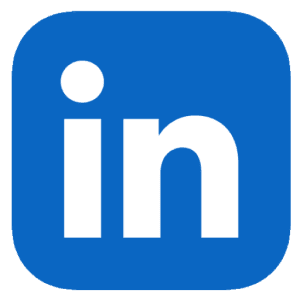 Career branding is defining and curating your professional narrative to allow potential employers to understand your abilities, principles, and approach to work. In the United States, young professionals increasingly use LinkedIn profiles, personal websites, and social media to establish themselves as career-ready.
Career branding is defining and curating your professional narrative to allow potential employers to understand your abilities, principles, and approach to work. In the United States, young professionals increasingly use LinkedIn profiles, personal websites, and social media to establish themselves as career-ready.
They illustrate the tangible outcomes of their work and communicate what sets them apart in a competitive field. Whether actively seeking jobs, freelancing, or otherwise, workers of all kinds utilize career branding to enhance their attractiveness to hiring managers.
They’re using it to build their professional networks. Great career branding focuses on tangible wins, work ethic, and character, rather than simple job duties. Many hiring teams in the U.S. Today look online for evidence of these skills before granting interviews.
This article will cover key steps and provide easy tips to build a strong career brand that aligns with your goals.
What Is Career Branding Anyway?
Career branding has evolved into a crucial aspect of how professionals distinguish themselves in a crowded and competitive job market. This represents a significant departure from traditional resume and cover letter approaches. In reality, they are just the tip of the iceberg, representing about 5% of what constitutes a personal brand.
Instead, career branding means purposefully designing and controlling the narrative around an outward-facing persona that aligns with your personal values, professional skills and long-term aspirations. For most, this involves completely revising the way they are perceived by everyone, both in person and online. A strong career brand will attract better job opportunities to you and open doors to career paths more aligned with your interests and abilities.
The original concept behind personal branding originated from how corporations were branding goods, to differentiate themselves from their competitors. Today, it’s standard practice for professionals to adapt these very same concepts to illustrate what sets them apart. This means being able to clearly articulate what your vision is, what your value proposition is, and what your reason for being at work is.
What you need to know about Career Branding
Seventy percent of employers are evaluating candidates’ online personas!
Style and consistency are essential. Each tweet, Reddit comment, or inappropriate ReShare on LinkedIn works to build your online identity. Seventy percent of employers are evaluating candidates’ online personas. A strong, distinct, and well-managed brand will differentiate you and help you stand out from the crowd, preventing you from getting lost in the noise.
Your career brand is not set in stone. Just like you, your brand is constantly growing and evolving. You may begin your process by concentrating on one skill before realizing that your career is taking you in different directions.
It requires a high level of self-awareness and honest self-reflection to build a brand. It means understanding what you’re for, what you value, and how you want to be perceived. Each aspect, whether it’s your online presence (hello, LinkedIn profile!) or the way you speak in a work meeting, contributes to your brand.
Why Career Branding Matters Now
The reality of work in the United States has undergone a dramatic shift. Never before have there been so many people with college degrees, specialized skills, and work experience. In a world where the wrong skills are chasing every job, it’s no longer sufficient to have the right skills to get ahead. North Carolina’s job market is exploding. It’s home to the country’s largest tech hub, Research Triangle Park, where startups and legacy firms are consistently fed with robust firepower.
Now, career branding is how talent communicates their value proposition and aligns themselves with the right opportunity. The way someone presents themselves—online and offline—can shape their path in the job market more than any one resume line or certification. Here are the top five reasons why career branding matters now, along with relevant examples from the field and practical context.
Career Branding: 1. Stand Out In Crowded Markets
The U.S. Job market is incredibly crowded, even in fields that are desperately needed. Two candidates could have the same degree, similar work experience, and strong technical skills. What differentiates them, though, is their career brand.
When a person takes the time to craft a compelling brand, they prove they are one-of-a-kind. They achieve this by blogging on LinkedIn, participating in industry discussions, and regularly updating their website. The unfortunate truth is that recruiters and hiring managers review hundreds of resumes.
A strong career brand enables you to showcase someone willing to go beyond the checklist. For example, a software engineer who blogs about new tools they discover or contribute to open-source projects stands out. These experiences, combined, help them stand out from other applicants who only have programming languages listed on their resumes.
Career Branding: 2. Attract Better Career Opportunities
 An established career brand serves as a North Star, attracting more lucrative career opportunities, gigs, and speaking engagements. These days, it’s employers and clients who come knocking on the door of those who have a well-defined online career brand that communicates their unique value.
An established career brand serves as a North Star, attracting more lucrative career opportunities, gigs, and speaking engagements. These days, it’s employers and clients who come knocking on the door of those who have a well-defined online career brand that communicates their unique value.
When your skills and professional story are clear and readily accessible, recruiters can quickly determine whether you’re a fit or not. Marketers who publicize case studies or successful results they’re generating on social media soon find themselves courted by companies.
These kinds of companies are always looking to hire people with that exact experience. Rather than needing to apply for every job listing, those with effective brands frequently have opportunities come to them. This is increasingly becoming the norm, as hiring managers look up job candidates’ online profiles before making initial contact.
Career Branding: 3. Build Real Trust And Credibility
Trust is a real currency in any profession, and especially in ours. Once the public becomes accustomed to a consistent, reliable, and professional message about who you are and what you do, it fosters trust. Career branding isn’t about being boastful.
It’s less about the thing itself and more about the way it is presented, making it all seem authentic and consistent. A nurse posts advice on how to care for patients on neighborhood listservs. By supporting her recommendations with practical experience, she earns credibility with her colleagues and patients alike.
Above all, it’s important to remember that consistency – in tone, in message – is crucial. Research indicates that the more you intentionally share your work projects and lessons learned, the more effective your career branding. Not only do these behaviors enhance career satisfaction, but they also make you more employable.
Career Branding: 4. Take Control Of Your Story
When a person doesn’t take the time to build their brand, others will make assumptions. They might even miscalculate skills or values, causing them to overcorrect on an issue. By developing a career brand, individuals can take control over the narrative that others share about them.
This holds true for both entry-level individuals and seasoned professionals. Take, for instance, a project manager who develops a social media brand surrounding concise problem-solving posts or videos. That project manager will be recalled for that talent.
Without this purposeful work, the rest may only see the most recent title or one project. Because of this, they often miss out on the entirety of what the candidate is capable of.
Career Branding: 5. Boost Your Professional Value
Career branding enhances a professional’s value. There’s a reason people are willing to pay premium prices for the work of thought leaders and go-to experts. When they identify you as an expert in your industry, their trust grows even more.
In Los Angeles, creative professionals consistently enhance their financial futures. By posting behind-the-scenes work and working with local brands, they get a higher rate and earn more project requests. This “value lift” goes far beyond dollars and cents.
It can result in higher quality projects, increased respect from fellow professionals, and greater credibility in pay negotiations or contract discussions.
6. Navigate Career Shifts Smoothly
People are switching careers or industries at an unprecedented rate. As we all shift from one career to the next in this post-pandemic world, a well-defined career brand goes a long way. It contextualizes previous skills to align them with present objectives, while assisting hiring managers in identifying the right match.
A teacher transitioning to edtech can offer valuable insights from their classroom experience. They don’t necessarily know how to connect these insights back to product design. This is way more interesting than a resume that tracks your work history.
A well-crafted personal brand will draw in hiring teams with your story. This evens out your career pivots to seem more credible and less risky.
7. Foster Meaningful Industry Connections
 Connecting is not just about who you know, but about building lasting relationships that benefit both parties mutually and continually. Career branding helps you quickly identify and connect with like-minded individuals to build those relationships.
Connecting is not just about who you know, but about building lasting relationships that benefit both parties mutually and continually. Career branding helps you quickly identify and connect with like-minded individuals to build those relationships.
When it’s clear what someone’s brand is all about, it’s easier to know how to support, refer to, or collaborate with them. An architect who posts articles about sustainable design is likely to attract more environmentally conscious professionals.
This engagement can lead to collaborative projects and referrals. Whether it’s industry groups, local meetups, or online forums, these opportunities are much more fruitful when someone’s brand is visible.
8. Differentiate Yourself Authentically
The most effective brands are confident without being cocky – they’re transparent and authentic. Pretending to be something you’re not isn’t sustainable. Personal branding is giving people an idea of who you are in a genuine, purposeful, and self-assured way.
This requires a focus on what makes them special, what they bring to the table that is not cookie-cutter. An accountant with a career transition from music production has an uncommon mix of data-informed creativity.
This new approach is what companies are truly seeking. This differentiation and resulting clarity allow individuals to communicate authentically why they stand out as the best choice, rather than being just another candidate with a cookie-cutter approach.
Craft Your Authentic Brand Story
Crafting an authentic brand story is crucial in today’s competitive job market. In addition to the company’s values, buyers care about who they work with and seek a strong sense of trust from those they do business with. Your authentic brand story will provide an honest picture of your unique assets, ambitions, and motivation to move ahead.
This allows both you and your audience to understand the actual value you have to offer.
Discover Your Unique Strengths 
Consider unique strengths such as the ability to coordinate teams, address complex challenges, or develop deep relationships. You could be the one who keeps the trains running on time. Or maybe you’re great at translating high-level concepts into digestible tasks for your colleagues.
This information is the foundation of your brand. For instance, an applicant might emphasize their talent for bringing innovative approaches to time-honored role responsibilities. Over time, this skill can form the backbone of their brand story.
Being transparent about your unique strengths and taking responsibility for your weaknesses creates a more resilient and authentic brand.
Define Your Desired Reputation
Then, define what you want to be known for. Especially in a place like Los Angeles, where the currency of connection is networking, your good name is your passport to opportunity. Perhaps you want to be a creative thinker, a steady hand at the wheel, or a trusted advisor.
Your authentic story must align with how you want to be perceived and resonate with the work culture in that locale. This goes a long way in helping folks understand what they can expect from you.
Know Who You Want To Reach
An authentic brand story resonates with the ideal audience. Get to know your audience—what are their needs, what are their concerns, what do they care about? In Los Angeles, for instance, creative industries may be more interested in innovative thinkers, while tech companies might seek out strong problem solvers.
Once you have an idea of who you want to reach, you can start crafting your message to fit within their world.
Weave Your Compelling Narrative
Utilize a basic narrative structure, such as the Hero’s Journey, to provide your brand story some movement. Start with how you got started. Then, please tell me about the obstacles you faced. Start to finish, end with what you’ve accomplished and what you learned during the process.
Make it concise, easy to understand, and authentic. Embed this story on your website or LinkedIn. Apply it during networking opportunities to always introduce your genuine brand. This fosters trust and resonates with your audience.
Amplify Your Digital Footprint
A well-developed digital footprint lays the groundwork for advancement in their future careers. It influences how people perceive you and can be the difference between getting your foot in the door when searching for a job in the U.S.
With most employers starting their candidate searches online, it is essential to ensure that your digital footprint is up-to-date, clear, and professionally engaging. Managing your privacy and what you share can be as vital to your security as what you share online.
That perfect combination establishes credibility and protects your good name.
Master Your LinkedIn Profile Presence
 LinkedIn has become an absolute essential for professional brand. Keep your job titles accurate and ensure your skills are relevant to your profile.
LinkedIn has become an absolute essential for professional brand. Keep your job titles accurate and ensure your skills are relevant to your profile.
A good summary will go a long way in helping people know what you have to offer. This is where adding recommendations from your coworkers or clients goes a long way.
Participate—take advantage of LinkedIn’s discussion groups, share and promote your organization’s posts, or reply to comments on your posts. This way, you’re not only a person with a profile, but someone connected to a larger community.
Use Social Media Strategically
It’s not just about posting a pretty photo or a thought of the day on social media. Twitter, Facebook, and even Instagram can help build your brand if you post about your field and engage in discussions with others in your industry.
Write substantive comments, tweet the media, and create a bridge back to your work. Tools like Google Alerts or Social Mention can keep you updated if someone mentions you, helping you spot and fix problems fast.
Consider A Personal Portfolio Site
Owning your site gives you the freedom to present your work, skills, and accomplishments in a way that illustrates your unique story primarily because it’s a space you directly control, as opposed to social sites.
Add your resume, some project samples, and contact information. This provides employers a complete picture of you that goes deeper than a LinkedIn search.
Ensure Consistent Online Messaging
Ensure that all your profiles, bios, and basic posts align with your capabilities and aspirations. As we’ve said many times before, consistency breeds trust.
If you get involved in Facebook groups or other online communities, be engaged and contribute. This demonstrates that you are conscientious and engaged with your discipline, helping you maintain a high-profile presence online.
Stay True To Yourself Always
Career branding is more than just having the perfect resume or LinkedIn. Staying true to yourself always wins. This is genuinely about being true to yourself, rather than manufacturing an idea of what you think your audience wants to see.
In North Carolina, where trends and outside opinions shape many fields, it’s easy to lose sight of your voice. Your brand is always more powerful when it’s based on your true self.
Let Your Core Values Shine
Your core values should dictate all of your decisions, especially when developing an effective career branding strategy. If you value collaboration, equity, or innovation, make that apparent in your submissions to enhance your brand. Consumers tend to trust brands that have a genuine cause, which can significantly impact your professional life.
In creative fields, individuals who showcase their authentic selves often stand out, receiving praise not just for their talent but also for their character. This aligns with the idea of crafting a compelling career brand that resonates with their audience.
When individuals operate from their authentic selves, they experience increased confidence and diminished anxiety, ultimately boosting their self-esteem. This authenticity fosters stronger connections within their professional network, paving the way for meaningful relationships in their career journey.
Avoid Just Chasing Trends
Avoid just chasing trends. That sounds like a good idea in the overheated music industry climate, but chasing trends is often a dumb move. It can lead to your brand coming across as inauthentic or inconsistent.
Those who rush to adopt every new trend in technology or media often risk losing what sets them apart. Instead, pick and research trends that advance your narrative.
That’s what creates a brand with true durability, not one that wilts when the next shiny object shows up.
Authenticity Builds Lasting Impact
When you’re authentic, it becomes much easier to make decisions that align with your long-term goals. It builds the kind of trust that is hard to earn. Authenticity drives far more truthful work and stronger connections with clients or employees.
Research has found that it not only inspires collaboration but also encourages creativity. Individuals are liberated to bounce ideas off one another and experiment.
Staying true—just as Woody Allen advised—making that simpler and deeper impact through just coming out is a much greater thing than most know.
Build Connections Strategically
 Developing a strong personal brand in the U.S. is about connecting the dots, not just adding more. It requires a strategic plan and a clear vision of your career goals and what you want to be known for. With about 85% of jobs found through networking, real progress often hinges on who you know and how effectively you maintain those professional relationships.
Developing a strong personal brand in the U.S. is about connecting the dots, not just adding more. It requires a strategic plan and a clear vision of your career goals and what you want to be known for. With about 85% of jobs found through networking, real progress often hinges on who you know and how effectively you maintain those professional relationships.
Network With a Clear Purpose
Begin by picturing what you’d like your future to be. Develop the habit of thinking five or ten years out. This allows you to choose individuals and organizations that align with your work or passions.
It’s more than just getting to know everybody at every conference. Prioritize engaging with people who have a mutual interest in your objectives, or bring complementary capabilities you wish to develop. If you’re a tech person, join Raleigh-Durham tech meetups and industry groups.
These events will introduce you to leaders and peers who will empower you to unlock new opportunities.
Learn Through Informational Chats
These informational chats allow you to learn firsthand from individuals who are already in the position you hope to achieve. These conversations can be informal, such as a cappuccino at a café in Cully, but they are also deep and understanding.
They provide you with an honest picture of what skills are critical and how you can differentiate yourself. These conversations not only provide education, but they also develop rapport and foster goodwill that can yield additional assistance in the future.
Seek Mentors And Wise Guidance
Real-life experiences, Mentors provide insight and wisdom that can’t be found in a textbook. They challenge blind spots and offer practical, applicable advice for everyday life.
Having a mentor can help you grow exponentially. This might be a direct supervisor at your current workplace or a person you networked with at an industry conference.
Gather Genuine Recommendations
 Engaging with the right influencers—the good ones—strengthens your brand. Solicit recommendations from people who are familiar with your work—supervisors, clients, or colleagues.
Engaging with the right influencers—the good ones—strengthens your brand. Solicit recommendations from people who are familiar with your work—supervisors, clients, or colleagues.
A well-crafted LinkedIn profile, complete with authentic recommendations, will capture the attention of recruiters.
Remember Your Offline Interactions
Remember your offline interactions. Online is just one piece of the puzzle. How you speak, how you listen to people, and most importantly, how you present yourself at events or in one-on-one meetings is your branding.
Consistent terminology and a one-sentence summary of your benefits keep your message sticky.
Evolve Your Brand Intentionally
Creating a career brand requires more than an updated biography or a headshot on LinkedIn. It’s about shaping a steady, real image that matches how you want people to see you at work and in your field.
In North Carolina and elsewhere, this involves being clear on your priorities, assets, and target audience. This consistency fosters trust and helps others to recall you more easily.
 Adapt As Your Industry Changes
Adapt As Your Industry Changes
Technology, trends, and employer needs change quickly, particularly in technology and creative industries prevalent in North Carolina. To stay ahead of the competition, regularly audit your digital presence.
Revamp your LinkedIn and other social media pages to showcase your newly acquired skills. Focus on what you’re doing today, not just where you were last year. If you’ve learned something new or recently secured a significant project, be sure to share this news on your website and social media.
This not only maintains your relevance but also serves as an obvious signal to any hiring manager or potential client that you’re evolving along with the industry. Networking is also an essential part of the equation. Meet people in person at conferences or virtually and share with them what you’re working on.
These connections enable you to build an excellent reputation that others can speak to.
Let Your Brand Reflect Growth
Let your brand communicate your progression. Take a moment to remember the critiques and notes from your superiors and collaborators.
Leverage their perspective to identify your strengths and areas for growth. Share your success as well as what you’ve learned along the way—perhaps in a blog post or even just a short LinkedIn update.
This allows you to be perceived by others as an individual who learns and leads. Be authentic to your brand, but don’t shy away from refining it as you achieve new milestones.
Track and Refine Your Brand
Reputation management and Career branding are not set-it-and-forget-it endeavors. Indeed, creating an effective brand requires regular internal reflection and external reality-checking. In the increasingly competitive labor market, hard skills and a proven track record matter.
When you have a clear and well-presented personal brand, that’s what makes you shine. Today, the impression you create on people is primarily shaped by both your online presence and your in-person presence. It’s a great way to track and refine your brand.
Monitor Your Online Reputation
Your online career brand speaks volumes about your professional identity. Nothing undermines effective career branding more than having boilerplate or outdated profiles, or worse, incomplete profiles. For instance, an old LinkedIn photo or a bio that skips recent work can make you seem out of touch with your career goals.
 Take the first step by Googling your name to see what appears and ensure that it aligns with the image you wish to convey. Tools such as Google Alerts or social media listening applications help you detect when and where people are discussing your professional brand. If you find information that doesn’t align with your current brand, take the initiative to update or clarify it quickly.
Take the first step by Googling your name to see what appears and ensure that it aligns with the image you wish to convey. Tools such as Google Alerts or social media listening applications help you detect when and where people are discussing your professional brand. If you find information that doesn’t align with your current brand, take the initiative to update or clarify it quickly.
Regular posting and maintaining a clean account communicate that you’re invested in your career branding efforts and mission, ultimately enhancing your visibility to future hiring managers.
Adjust Your Branding Strategy
Branding is not a box you check once and done. Even the strongest, most established brands require adjustments. If the public’s perception isn’t aligned with what you hope to project, then it’s time to change course.
Perhaps you have an initiative that you could provide more details about, or a recent success story that would highlight your expertise. Experiment with different approaches to telling your story, such as highlighting a new project, an award, or a team win.
Get your message clear and consistent across the board—from emails to press interviews to social media. This is what allows people to get a true sense of who you are, rather than trying to read into it.
Conclusion
To truly position yourself above the competition, your career brand needs to be authentic and reflective of your best work. Anyone who lives in Los Angeles knows how fast things can change around here. A positive and clear brand will open up doors that would otherwise be closed. Build, display, present, narrate, and, above all, let your work speak for itself. Logistically, ensure your online content is up-to-date, authentic to what you value, and adaptable to new developments. Creating a strong brand will not only introduce you to new people but also lead to better opportunities and increased awareness of your name. Looking to take your branding efforts to the next level? Start small, stay authentic, and let your brand do the heavy lifting for you. Do you have any questions or would like to share your experiences? Stay in touch and continue the conversation.
Key Takeaways
- Having a career brand establishes your professional value in a more competitive job market and gets you noticed by the right opportunities.
- Establishing a transparent and genuine narrative will increase your trustworthiness and career currency in the long run.
- Developing this online narrative and maintaining consistent messaging from LinkedIn to a personal website creates a positive digital presence.
- Networking with intent and looking for intentional relationships in your industry are essential for long-term career development.
- Staying focused on your main brand pillars and not getting distracted by short-lived trends will help you keep your brand authentic and effective.
- Regularly monitoring and refining your career brand helps you adapt to industry changes and maintain a strong professional presence.


0 Comments